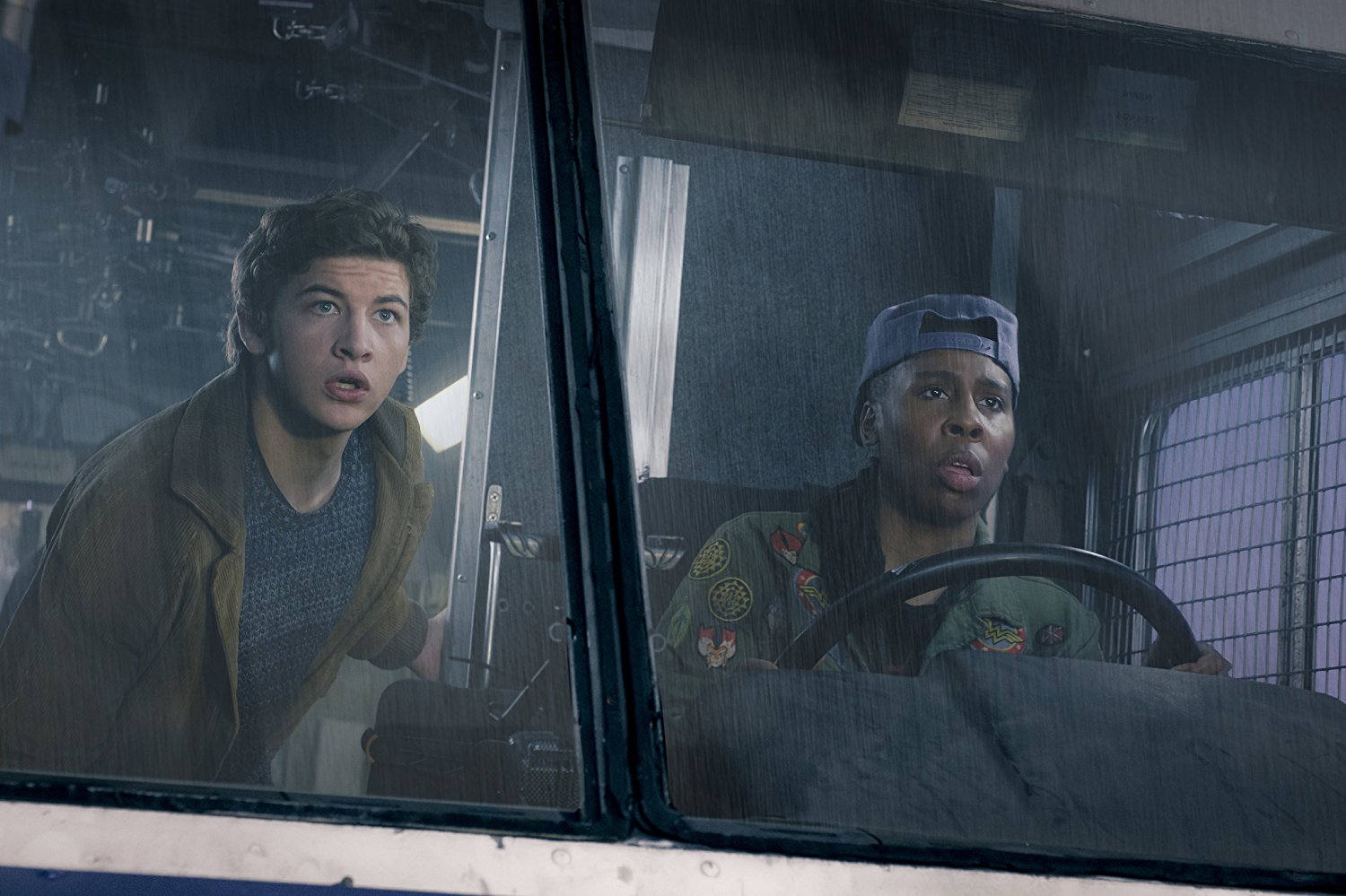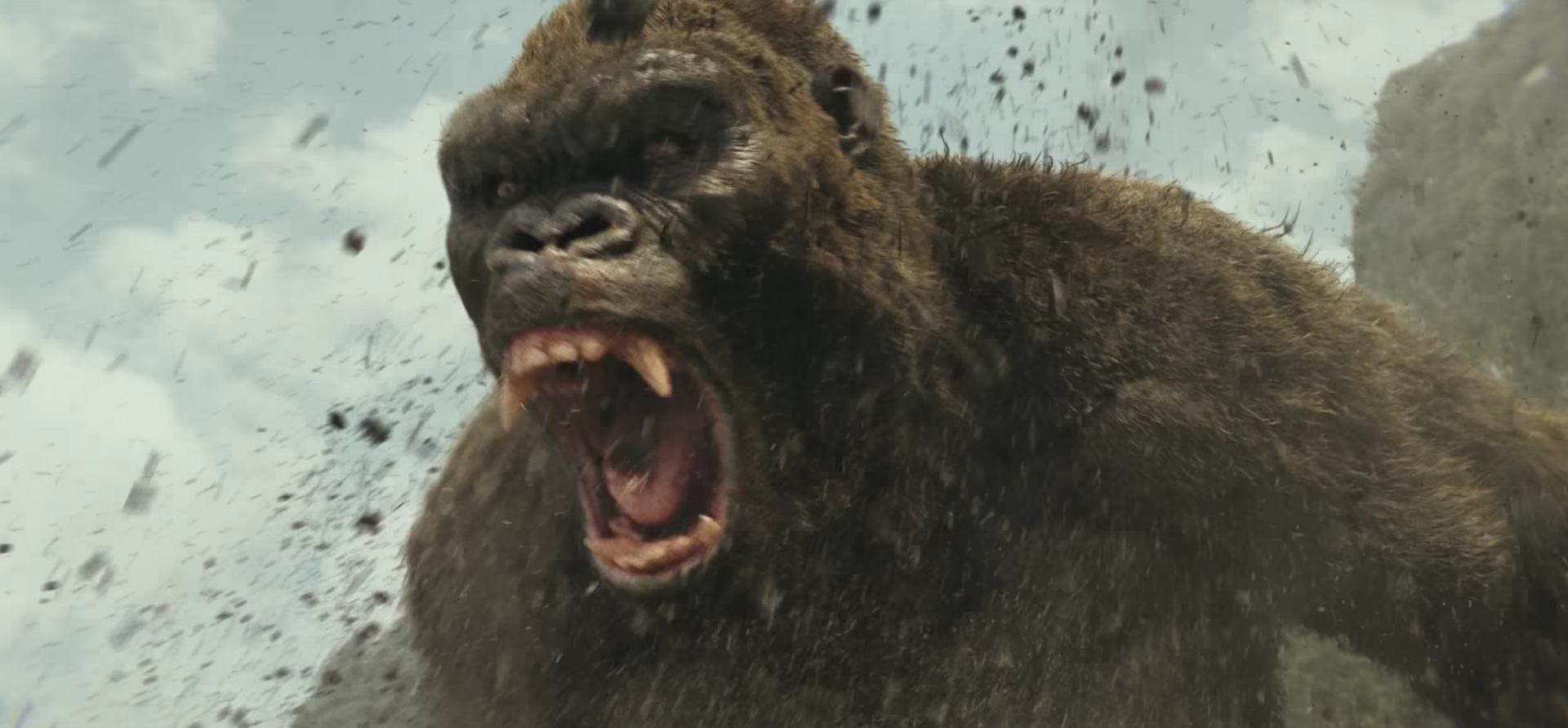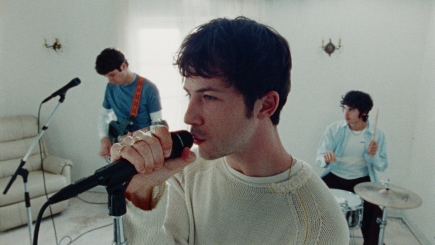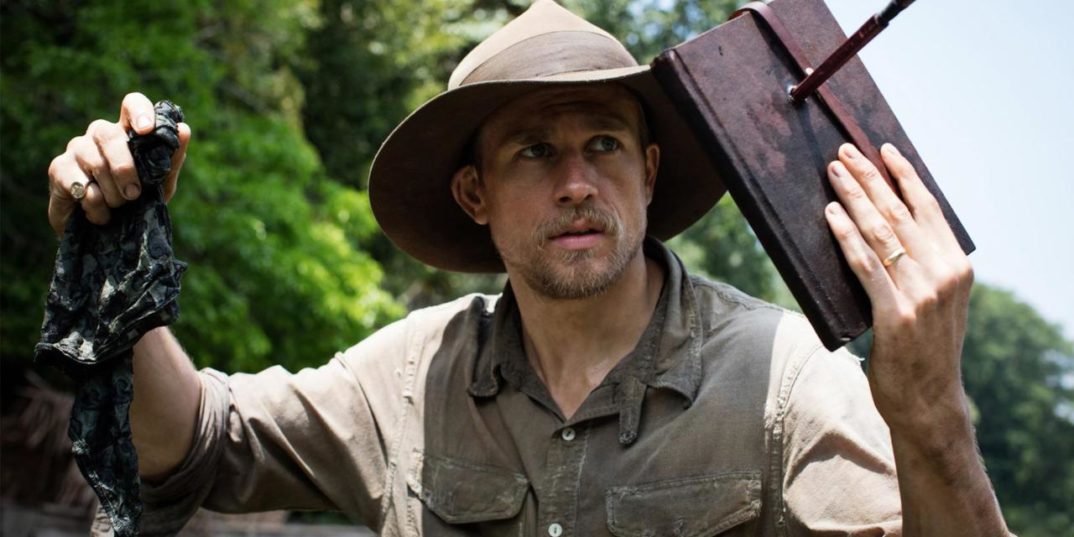Nostalgia is a tricky thing that can be a harmless source of enjoyment or a toxic force that can damage those who consume too much of it. Our current societies penchant for nostalgia filled media veers back and forth between these two extremes, but mostly floats somewhere in the middle. Ready Player One plays on our love of nostalgia to a troubling degree, using it as a replacement for story development and guaranteeing its appeal will be short-lived. The film elevates being a fan to the status of hero and plays out the fantasy that you can save the world simply by obsessing about your particular fandom.
Wade Watts (Tye Sheridan) is an orphan living in a literal stack of trailers with his indifferent aunt and her abusive boyfriend. He escapes his boring life by entering the Oasis, a virtual game world where players can become anything. When the creator of the game, James Halliday (Mark Rylance), died he left behind 3 puzzles that lead to an Easter Egg which will give its finder complete control over the Oasis. Wade is obsessed with Halliday and spends his days hunting for the answer to the puzzles with his friends and learning every bit of pointless minutia he can about Halliday to increase his chance of finding something. When Wade discovers the secret to the first puzzle he sets off a chain of events that will endanger his friends and family and change their world no matter what the outcome.
Stories like this always have a villain, and Ready Player One’s is Sorrento, played perfectly by Ben Mendelsohn, who comes straight out of a cheesy 80’s film about a greedy land developer. Sorrento is the CEO of IOI, the company that has been controlling most of the Oasis since Halliday died, which also seems to be all powerful in the real world, at least until the story calls for it to be otherwise. Wade and his friends race against IOI to claim the Oasis, at first only in the game, but as the stakes rise their battle spills over into the real world.
Ready Player One spends so much time in the virtual world that it comes very close to being an animated film, which isn’t necessarily an issue. However, the CGI vacillates between breathtakingly beautiful scenes and creepy moments with uncanny valley faces which makes for an uneven visual experience. The many action set pieces are fun to watch, especially during the puzzle solving scenes, but as the climax approaches and the action ramps up to 11, the screen becomes so overcrowded that it is difficult to track what is going on.
While Tye Sheridan does a competent job, he isn’t given much scope to work with, Wade is a completely average white guy who doesn’t seem to have a lot to contribute other than knowing an obsessive amount about James Halliday. It’s almost a shame that his friends are far more interesting, with unique contributions and glimpses of backstories that are more detailed than Wade’s, particularly Lena Waithe who gives, hands down, the most interesting performance in the film. Mark Rylance is also a pleasure to watch as we see him aging back and forth in the different scenes of this strange auteur’s life that has inspired the films hero. Unfortunately, TJ Miller still has a small role in the film even after the allegations of sexual assault and harassment came out and the film would have been better served had he been recast.
Ready Player One’s biggest problem is that it isn’t sure what it wants to be or the message it wants to send. It tries to capture the 80’s Spielberg magic that the novel is inspired by and periodically succeeds, but all too often I found the endless stream of references overloaded everything else. Typically, Spielberg excels at hitting that perfect tone for a family film, but this one never commits to either embracing the sillier side of its story to support its feather-light ending or pulling back the curtain on the darker aspects of how this world is running and having its heroes expose the truth. Instead, it tries to do a little of both and loses the balance, ending up with jarring shifts in tone throughout the film, sometimes within the same scene. The film’s reliance on 80’s and 90’s pop culture is a serious weak point that is reflective of the desire to cling to the stories of the past and refuse to make way for new ones. While Ready Player One is vaguely critical of that desire it chooses instead to focuses on the value of getting outside of the virtual world and living a real life. But by having the hero succeed through knowledge gained by his obsession, it tacitly endorses the value of being obsessed.
Despite its many issues, Ready Player One is still an enjoyable ride that ticks all the boxes of a big summer blockbuster. For those who enjoy mashup culture and have fond memories of the intellectual properties on display, it will be especially successful. Despite its overlong running time and shallow story, it tells its story at a breakneck pace that keeps viewers engaged right up until the end. Ready Player One probably won’t be long remembered, but for this summer it will certainly have its fans.













